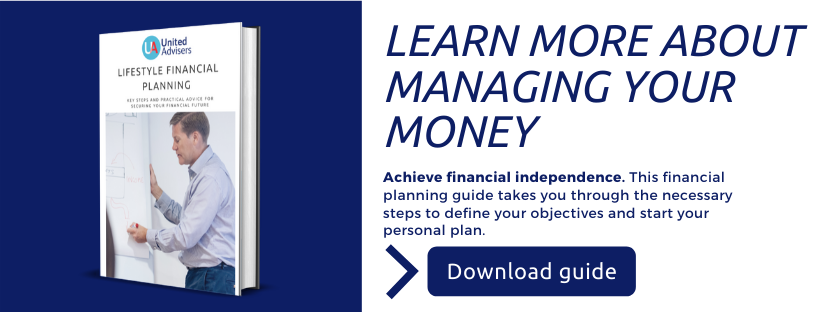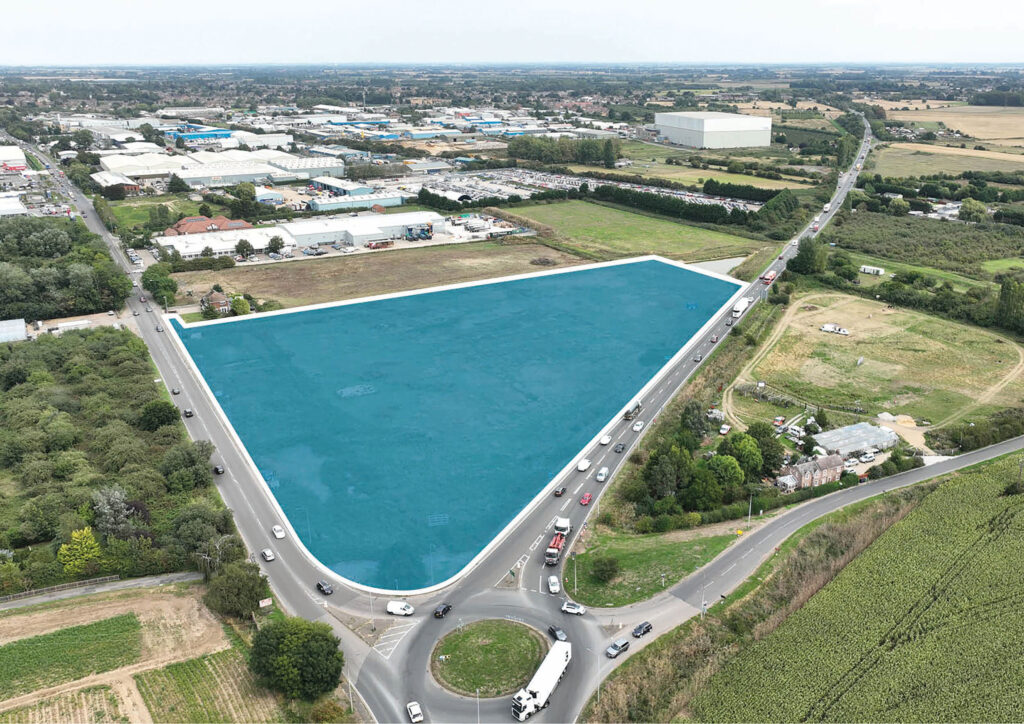How often do you receive promotional offers encouraging you to spend? The compulsion to buy is, quite literally, always at your fingertips. This temptation, however, can be damaging to your ability to achieve financial independence.
It’s all well and good to enjoy yourself now but what about creating the opportunity to enjoy more things for longer by making your money work for you?
Financial independence is:
When you no longer need to be employed to finance your lifestyle.
Top 6 benefits of financial independence
-
Live and work on your own terms
If your passive income (income from investments and interest on savings) meets your outgoings, you get to decide how you work, who you work with and how long you work for; you’re not at the mercy of employers and employment contracts. This gives you greater negotiating power when it comes to your next role. If salary doesn’t matter, you can have more of what does matter to you. That may be working hours, holiday allowance, autonomy or project choice.
When we are no longer bound by the ‘golden handcuffs’ of a salary, the job world suddenly gets a lot more exciting. If your investments are paying for your lifestyle you may decide to embark on a business venture or invest in a personal project different to a traditional salaried role.
-
Greater financial security
Job security is increasingly becoming an illusion. Zero hour contracts are now more common, fundamentally changing how companies operate. A job for life doesn’t really exist as before.
Being financially independent means you are in a better position to ensure you don’t find yourself at the mercy of these factors. When you’re financially independent, you can choose roles that suit your approach to risk rather than being dependent on a salary.
-
Unemployment insurance
Having savings and investments in place means you don’t need to rely on minimal unemployment payments that only just cover the bare necessities; you can continue to live a lifestyle that’s comfortable for you.
Just because you’ve achieved financial independence doesn’t mean you stop working. You may want to increase your wealth, improve the comfort of your lifestyle or save for your children. But, should you or your partner lose their job, you are safe knowing your lifestyle is protected and you won’t need to make adjustments.
-
Extra investment power
Your assets and investments can result in additional income you wouldn’t otherwise receive. You can consider it a bonus, on top of your salary, that you get to pay yourself. Money which hasn’t been earned through a labour/salary exchange is often cited by our clients as one of the top benefits of financial independence.
And the sooner you achieve financial independence, the sooner you are able to grow your personal wealth. Compound interest has often been described as the 8th wonder of the world. When you no longer need to withdraw the money your investments are making but instead re-invest, you quickly benefit from compound interest. In the example below you can see the difference being able to invest over a long period makes when the interest compounds. Both situations show a base investment of €72,000 but the difference in the returns is €35,000.
If you start saving €300 a month today and continue saving the same amount for the next 20 years, you will put away €72,000.
If this were to go into an account that earned 5% interest each year, after 20 years you will have accumulated savings worth €124,989.
If, however, you delay saving for a further 8 years you will need to invest €500 a month. With the increased premium, you’ll save €72,000 in 12 years and, with the same 5% rate of interest, your balance will be €90,015.
-
Early retirement
FIRE has become one of the most popular acronyms for financial independence. FIRE stands for Financial Independence Retire Early.
The reality of state-funded retirement is that the payments are rarely enough to maintain the lifestyle that most of us envisage for our retirement. Also, the majority of countries are pushing back retirement age in line with our ever-increasing life expectancies.
Those who wish to enjoy retirement early, be it at 45 or 60, need to ensure they have a revenue stream that will sustain their lifestyles well past the average life expectancy. This number will be different for everyone but you can read more about the 4% rule and how much to save for retirement.
-
Peace of mind
If your passive income exceeds your minimum expenses you will have greater flexibility.
Removing the stress of an income related to employment is incredibly liberating. As we mentioned previously, many clients continue to work and grow their personal wealth. However, they do so without the stress of having to worry about achieving the next promotion for a salary increase.
The more stresses we can reduce in our lives, the happier we can be. Money issues are often cited as one of the most stressful factors in our lives and are often the cause of family disputes.
Financial independence provides freedom of choice, which is why so many of us strive to achieve it.
Why is financial independence so hard to achieve?
Most people want to become financially independent, so why do so few people get there?
There are a number of reasons but below are the most common reasons we have come across.
Shortage of time
Expats working in senior roles often have very little free time. The reality is most of us don’t want to spend our free time reviewing our personal expenses, asset performance and tracking net worth. It’s much more enjoyable spending the weekend either at the beach or in the mountains or catching up with family and friends.
But to achieve financial independence, you need to invest some time. While working with a financial adviser takes less time than if you do it alone, it still requires a commitment to meetings, reviews and providing your financial details so that a detailed and accurate plan can be developed. If you decide to take control of your financial plan ensure you have a clear framework. Also commit time in your diary to ensure you not only complete the plan but make the necessary changes.
Lack of knowledge
There is no reason you should know everything about taking control and managing your financial future. Fortunately, there is an abundance of online resources available. We have a library of guides and blogs and share some of our favourite financial experts below:
- So Money Podcast
- Investopedia by Forbes
- Money Week (if you prefer a classic subscription-based model)
- Mint.com app
- online ‘gurus’ such as Budgets are Sexy and Mr Money Moustache (although these can be very country specific).
No plan
You can have all the knowledge and time in the world but without the plan to direct you there is a little chance of achieving your financial goals.

It can take time to truly figure out what you want in the future. Developing a personal financial plan isn’t just a case of writing numbers on a piece of paper; it is about connecting with your values, determining the kind of life you want and making a plan to make that happen. There is a reasonable amount of reflection needed before the hard numbers get added into the planning software.
Haven’t truly committed to a goal
You must truly want to achieve financial independence and be prepared to commit to any changes needed to make it happen. Being financially free is a different journey for everyone. For some, minimal or no changes are required. For others, they may need to make significant lifestyle changes for a period to several years to achieve the future lifestyle they envisage for themselves.
When the goal becomes more exciting and more important than other expenses, changes are easy to make. And this is probably the reason many of us don’t achieve our goals. It is much easier to carry on as we are than it is to pull back the curtains and analyse our situation. Because, once we know, there is no going back!
How can you start to achieve financial independence?
It all starts with a willingness to commit to a goal. If you share your finances as a couple it’s important you share the same goal. Once your goals is agreed, you need a detailed plan to achieve it.
A good starting point is to review your current assets and investments. Are they giving you the best possible returns? Review what liabilities or debts you have. What changes could you make to reduce these now? These are some cornerstones of a solid financial plan.
Regardless of where you are in life, whether you’re just starting out, enjoying peak earning potential or thinking of taking life slightly easier, financial planning is essential.
If you would like to discuss your financial plan with a specialist or learn more about the benefits of financial independence, please get in touch with one of our Financial Planners.





